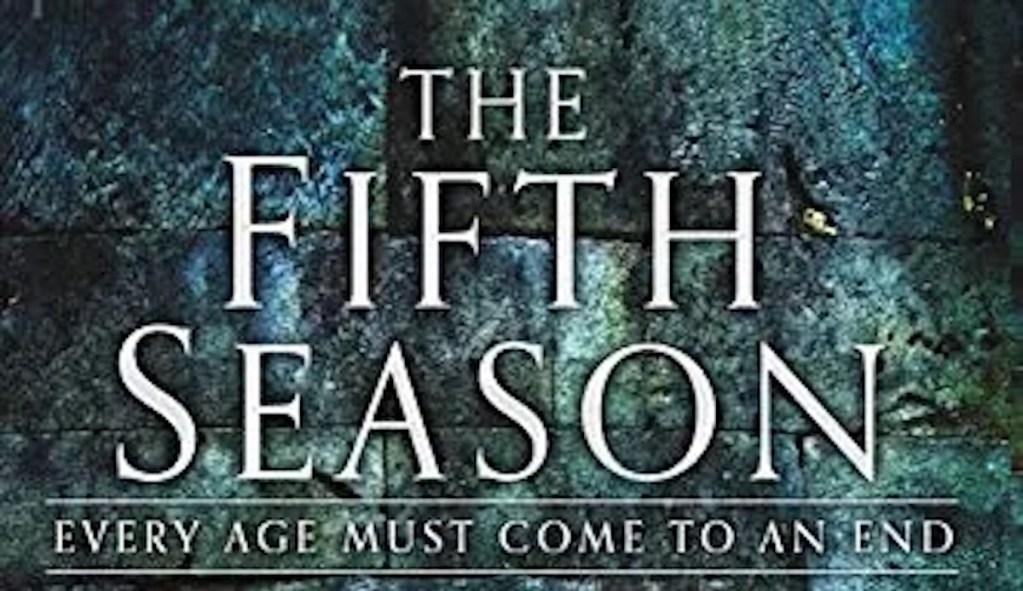For the past 20 years, the Santa Barbara Public Library’s Santa Barbara Reads program has invited the community to gather and read 25 books together. These titles have varied in genre and form, all chosen to inspire conversations about issues that matter. In 2018, we celebrated the bicentennial anniversary of the modern science fiction genre by reading Mary Shelley’s Frankenstein. In 2022, we’re exploring just how far the genre has come by reading one of the most iconic speculative fiction titles of the past decade: N.K. Jemisin’s The Fifth Season.
Speculative fiction (an umbrella term for science fiction, fantasy, and the stories that fall somewhere between them) revolves around the question “What if?” At its best, it takes contemporary societal issues and imagines one version of their conclusion. What if, asks Frankenstein, a privileged and ambitious college dropout discovered the secret to a morally fraught scientific breakthrough? What would he do with this power? How would he take responsibility for its consequences?
What if, asks The Fifth Season, the world was collapsing around us and a small group of people had the ability to control it? What systems might be built to exploit this power and control those who hold it? In the midst of the end of the world, what does someone’s personal apocalypse matter?
The Fifth Season is the first novel in Jemisin’s Broken Earth trilogy. All three novels in the series have the distinction of winning the Hugo Award for Best Novel — one of the highest achievements of the genre. Jemisin, in fact, is the first author to ever win the award for three consecutive years, and also the first to have each title in a series attain that honor.
Set on a continent called the Stillness, the characters in Jemisin’s world have become used to violent natural disasters, called Seasons, that regularly ravage the planet and nearly wipe out the human race. Humanity’s survival is aided by orogenes, people who can manipulate the earth and help mitigate the disastrous consequences of a Season. Orogenes are shunned and feared by society and mandated to serve the government that exploits their powers to survive.
The novel is the story of three women navigating this fractured world, each at points of transition between terrible endings and equally terrible beginnings. The heart of the novel lies with Essun – a woman hiding a dangerous secret who has just discovered that her husband has murdered their son and kidnapped their daughter. We’re introduced to her just as she finds her son’s body, right as a new cataclysm tears through the world.
“You are here,” The Fifth Season begins. “Let’s start with the end of the world, why don’t we?”
Addressing both Essun and the reader in the second person, these words immediately pull you into the novel while insisting that you — just like Essun — cannot be absolved of the story’s consequences. Jemisin’s choice to write Essun’s chapters in this point of view mirrors the character’s dissociative state after her son’s murder, while also drawing the reader emotionally into the story. The structure of the novel, in general, is masterful. Jemisin’s skill at weaving intricate suspense throughout the chapters instills an extra sense of urgency in its pages. Despite its length, it never seems long or unwieldy, as its complex character development provides a base for unparalleled world-building. The two work in tandem, avoiding the dreaded front-heavy info-dump some speculative fiction relies on in less skilled hands. While the book boasts two appendices, they’re hardly necessary, as the world is unveiled through its characters’ eyes.
“You are here,” Jemisin entreats us, “the end of the world.” What might we learn from it?
Santa Barbara Reads programming runs from October 6 through November 8. Find information about events, book discussions, and more at library.santabarbaraca.gov/sb-reads-2022.
Support the Santa Barbara Independent through a long-term or a single contribution.

